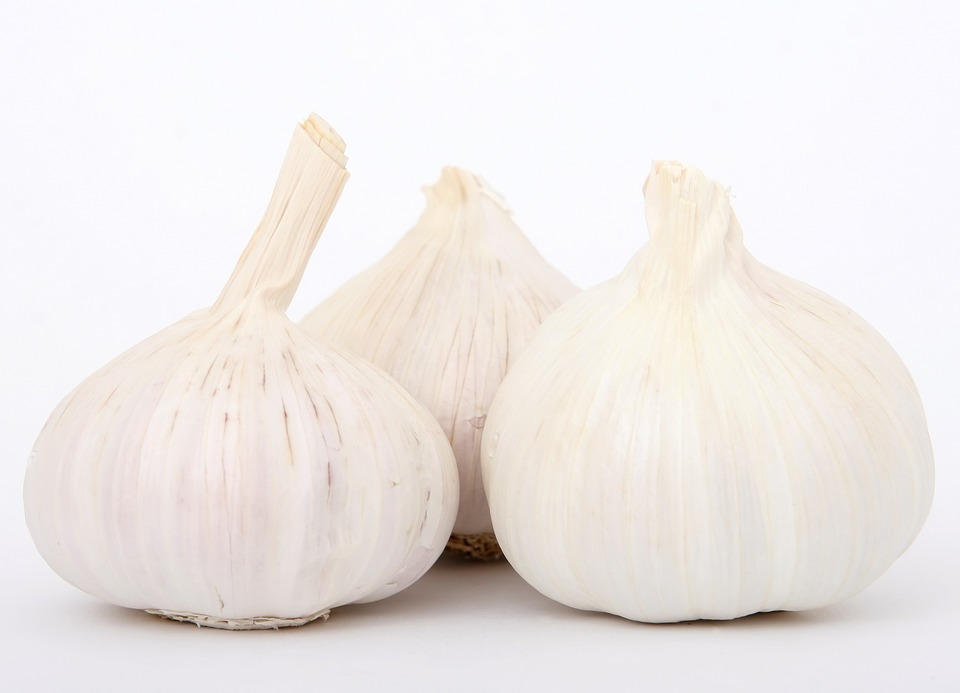gastric sleeve And Constipation: Causes, Symptoms, and Solutions
Gastric sleeve surgery, also known as sleeve gastrectomy, is a popular weight loss procedure that involves reducing the size of the stomach to promote weight loss. While gastric sleeve surgery can have numerous positive effects on a person’s health, it may also lead to certain side effects, such as constipation. In this article, we will explore the causes, symptoms, and solutions for constipation after gastric sleeve surgery.
Understanding Constipation After Gastric Sleeve Surgery
Constipation is a common gastrointestinal issue characterized by infrequent bowel movements or difficulty passing stools. After gastric sleeve surgery, patients may experience constipation due to various factors, including changes in diet, reduced food intake, hormonal changes, and reduced physical activity.
Causes of Constipation After Gastric Sleeve Surgery
1. Dietary Changes: Following gastric sleeve surgery, patients are often advised to follow a strict diet, which may include limited fiber intake. Insufficient fiber in the diet can contribute to constipation as fiber helps soften the stools and promotes regular bowel movements. Additionally, inadequate fluid intake can also lead to constipation.
2. Reduced Food Intake: After gastric sleeve surgery, the stomach’s size is significantly reduced, resulting in smaller meals and reduced food intake. This reduction in food volume can decrease the frequency and volume of bowel movements, leading to constipation.
3. Hormonal Changes: Gastric sleeve surgery can cause hormonal changes in the body, including a decrease in the production of ghrelin, a hormone that stimulates hunger. These hormonal changes can affect the normal functioning of the digestive system, potentially leading to constipation.
4. Reduced Physical Activity: Following gastric sleeve surgery, patients may experience reduced physical activity due to post-operative recovery and lifestyle changes. Lack of regular exercise can slow down the digestive system, leading to constipation.
Symptoms of Constipation After Gastric Sleeve Surgery
Constipation can present various symptoms after gastric sleeve surgery. These may include:
– Infrequent bowel movements (less than three times a week)
– Difficulty passing stools
– Hard, dry stools
– Abdominal bloating and discomfort
– Straining during bowel movements
– Feeling of incomplete evacuation
If you experience any of these symptoms persistently, it is important to consult with your healthcare provider for proper evaluation and guidance.
Solutions for Constipation After Gastric Sleeve Surgery
Fortunately, there are several strategies to manage and prevent constipation after gastric sleeve surgery. Here are some solutions:
1. Increase Fiber Intake: Gradually increase your intake of fiber-rich foods, such as fruits, vegetables, whole grains, and legumes. Fiber adds bulk to the stool, making it easier to pass through the digestive system. However, it is essential to introduce fiber slowly to avoid discomfort or gas.
2. Stay Hydrated: Adequate fluid intake is crucial for maintaining regular bowel movements. Drink plenty of water throughout the day to prevent dehydration and soften the stools. Avoid excessive consumption of caffeinated or sugary beverages, as they can contribute to dehydration.
3. Incorporate Exercise: Engaging in regular physical activity can stimulate the digestive system and promote bowel regularity. Consult with your healthcare provider to determine appropriate exercises after gastric sleeve surgery.
4. Consider Probiotics: Probiotics are beneficial bacteria that can promote a healthy gut. They can help improve digestion and prevent constipation. Discuss with your healthcare provider about incorporating probiotic-rich foods or supplements into your diet.
5. Follow Your Healthcare Provider’s Guidance: Your healthcare provider will provide specific instructions and guidelines for post-operative care, including dietary recommendations and medications. It is crucial to follow their advice to manage constipation effectively.
conclusion
Constipation can be a bothersome side effect following gastric sleeve surgery. However, by understanding the causes, recognizing the symptoms, and implementing appropriate solutions, it is possible to manage and prevent constipation effectively. Remember to consult with your healthcare provider for personalized advice and guidance tailored to your specific needs.
Frequently Asked Queries About Gastric Sleeve And Constipation
1. What is gastric sleeve surgery?
Gastric sleeve surgery, also known as sleeve gastrectomy, is a surgical procedure that involves the removal of a large portion of the stomach to create a smaller, sleeve-shaped stomach. This procedure aims to help individuals with obesity lose weight by restricting the amount of food they can consume.
The three most important pieces of information about gastric sleeve surgery are:
1. Gastric sleeve surgery involves removing a significant portion of the stomach to create a smaller, sleeve-shaped stomach.
2. This procedure is primarily performed on individuals who are severely obese and have been unsuccessful in losing weight through other methods.
3. Gastric sleeve surgery helps in weight loss by restricting the amount of food that can be consumed, leading to reduced calorie intake.
2. How does gastric sleeve surgery affect digestion?
Gastric sleeve surgery impacts digestion by reducing the size of the stomach and altering the production of certain digestive hormones. After the surgery, the smaller stomach can hold less food, leading to a feeling of fullness with smaller meals. Additionally, the removal of a portion of the stomach may affect the production of hormones that regulate hunger and satiety, which can further contribute to weight loss.
The three most important pieces of information about how gastric sleeve surgery affects digestion are:
1. Gastric sleeve surgery reduces the size of the stomach, leading to a feeling of fullness with smaller meals.
2. This surgery may also impact the production of hormones that regulate hunger and satiety, potentially aiding in weight loss.
3. Digestion is not completely compromised by gastric sleeve surgery, but the changes in stomach size and hormone production can significantly influence eating habits and weight management.
3. Can gastric sleeve surgery cause constipation?
Yes, gastric sleeve surgery can potentially cause constipation in some individuals. The changes in stomach size and altered digestion patterns post-surgery can affect bowel movements. Reduced food intake and changes in the absorption of nutrients may result in less frequent bowel movements or difficulty passing stools.
The three most important pieces of information about gastric sleeve surgery and constipation are:
1. Gastric sleeve surgery can lead to constipation in certain individuals due to changes in stomach size and altered digestion patterns.
2. Reduced food intake and changes in nutrient absorption may contribute to less frequent bowel movements.
3. It is important for individuals who have undergone gastric sleeve surgery to maintain a healthy diet, drink plenty of fluids, and incorporate physical activity to prevent or alleviate constipation.
4. How can constipation be managed after gastric sleeve surgery?
Constipation after gastric sleeve surgery can be managed through various methods. Making dietary adjustments, such as increasing fiber intake and consuming adequate fluids, can help promote regular bowel movements. Regular physical activity, such as walking or light exercise, can also aid in improving digestion. In some cases, doctors may recommend stool softeners or other medications to alleviate constipation.
The three most important pieces of information about managing constipation after gastric sleeve surgery are:
1. Dietary adjustments, including increasing fiber intake and consuming sufficient fluids, can help prevent and alleviate constipation.
2. Regular physical activity, such as walking or light exercise, can promote better digestion and bowel movements.
3. In severe cases, doctors may prescribe stool softeners or other medications to manage constipation after gastric sleeve surgery.
5. When should I seek medical help for constipation after gastric sleeve surgery?
While constipation is a common occurrence after gastric sleeve surgery, there are situations where medical assistance should be sought. If constipation persists for an extended period, becomes severe, or is accompanied by intense abdominal pain, it is important to consult a healthcare professional. They can evaluate the situation, provide appropriate guidance, and recommend further treatment options if necessary.
The three most important pieces of information about seeking medical help for constipation after gastric sleeve surgery are:
1. If constipation after gastric sleeve surgery persists for a prolonged period or becomes severe, it is recommended to seek medical assistance.
2. Intense abdominal pain accompanied by constipation should be evaluated by a healthcare professional.
3. Consulting a healthcare professional allows for proper evaluation, guidance, and potential treatment options to address constipation after gastric sleeve surgery.
Common Misconceptions about Gastric Sleeve and Constipation
1. Gastric Sleeve surgery causes chronic constipation
There is a common Misconception that gastric sleeve surgery, also known as sleeve gastrectomy, can lead to chronic constipation. However, constipation is not a direct result of this surgical procedure. Gastric sleeve surgery involves the removal of a portion of the stomach to reduce its capacity, which aids in weight loss. While changes in diet and lifestyle after the surgery may lead to temporary constipation, it is not a long-term effect or a direct consequence of the surgery itself.
2. Gastric sleeve surgery worsens pre-existing constipation
Another misconception is that undergoing gastric sleeve surgery can worsen pre-existing constipation. While it is true that some individuals may experience temporary changes in bowel movements after the surgery, it is usually not a worsening of pre-existing constipation. These changes are often attributed to the postoperative dietary changes and the body’s adjustment to the surgery. It is important to consult with a healthcare professional to manage any pre-existing constipation and make necessary adjustments to the postoperative lifestyle to alleviate any discomfort.
3. Gastric sleeve surgery leads to nutrient deficiencies causing constipation
Some individuals believe that gastric sleeve surgery can cause nutrient deficiencies, which in turn lead to constipation. While it is true that Bariatric surgeries can impact nutrient absorption, gastric sleeve surgery does not typically result in severe deficiencies that directly cause constipation. Following the recommended dietary guidelines and taking prescribed supplements can help prevent nutrient deficiencies and minimize the risk of constipation. It is crucial to follow the postoperative care plan provided by healthcare professionals to ensure adequate nutrient intake and promote regular bowel movements.
4. Gastric sleeve surgery permanently damages the digestive system causing constipation
There is a misconception that gastric sleeve surgery permanently damages the digestive system, leading to chronic constipation. However, this is not accurate. Gastric sleeve surgery alters the size and shape of the stomach to promote weight loss, but it does not cause permanent damage to the digestive system. The surgery primarily reduces the stomach’s capacity, which can temporarily affect digestion and bowel movements. With time and proper dietary management, the digestive system adjusts, and regular bowel movements can be restored.
5. Increasing fiber intake is the only solution for constipation after gastric sleeve surgery
Many people believe that increasing fiber intake is the only solution for constipation after gastric sleeve surgery. While fiber is an essential component of a healthy diet and can aid in maintaining regular bowel movements, it is not the sole solution to postoperative constipation. Other factors, such as hydration, physical activity, and overall dietary balance, play a crucial role in preventing and managing constipation after gastric sleeve surgery. It is important to consult with healthcare professionals who can provide personalized guidance on managing constipation and ensuring a balanced diet that meets individual needs.
In conclusion, there are several misconceptions surrounding gastric sleeve surgery and constipation. It is crucial to understand that while some individuals may experience temporary changes in bowel movements after the surgery, constipation is not a direct result of the surgical procedure. Following the recommended dietary guidelines, staying hydrated, engaging in physical activity, and consulting with healthcare professionals can help manage and prevent constipation after gastric sleeve surgery. It is important to dispel these misconceptions and seek accurate information to make informed decisions regarding gastric sleeve surgery and postoperative care.
Gastric Sleeve And Constipation
#Constipation #common #concern #undergoing #gastric #sleeve #surgery #surgery #reduces #size #stomach #alters #digestive #system #lead #bowel #movements

